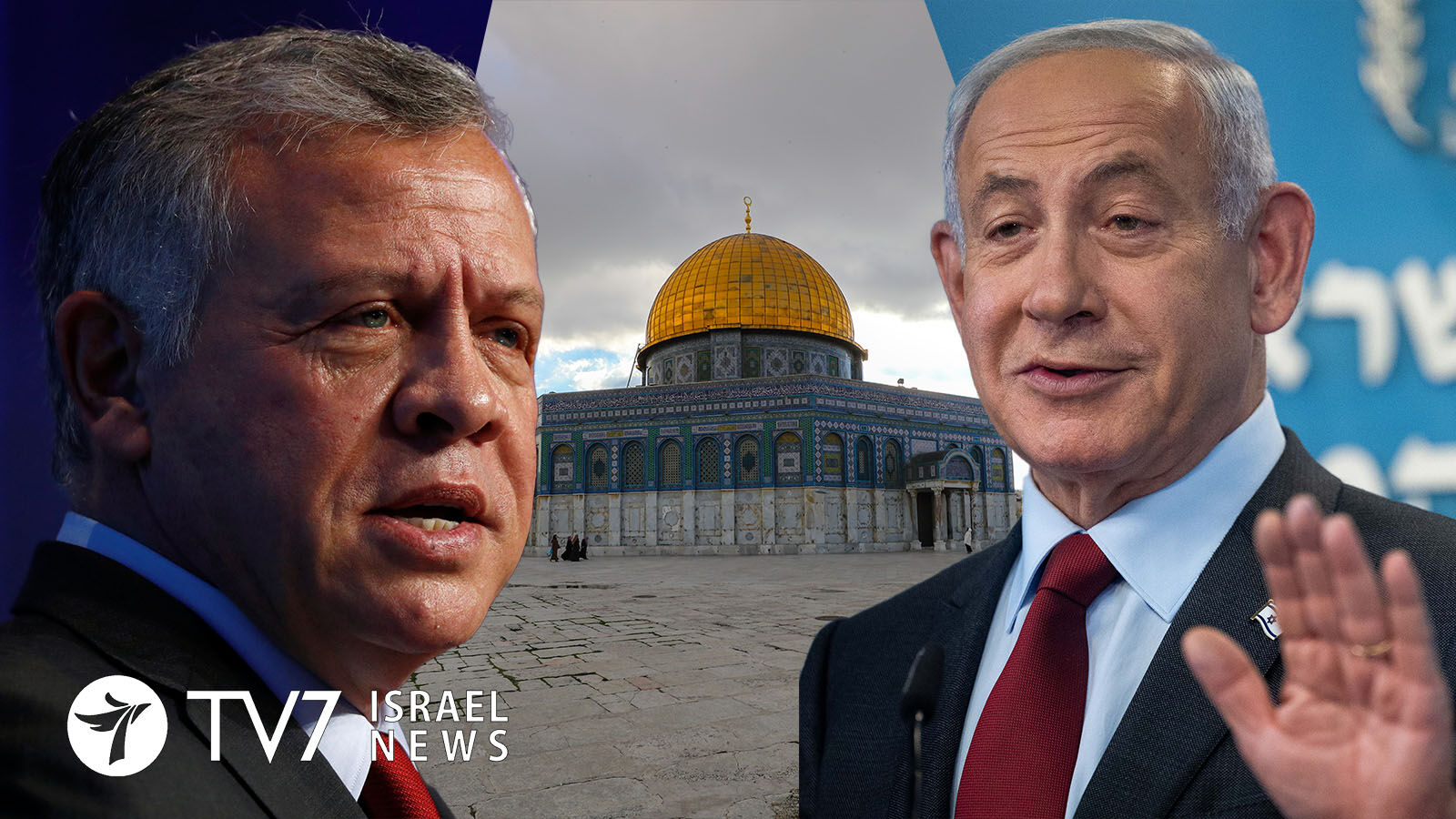Israeli Prime Minister Benjamin Netanyahu made a surprise trip to Jordan in what was his first foreign trip since returning to office last month.
By Erin Viner
King Abdullah II of the Hashemite Kingdom hosted Israeli Prime Minister Benjamin Netanyahu for the one-day visit to Amman on Tuesday. “The two leaders discussed regional issues, especially strategic, security and economic cooperation between Israel and Jordan, which contributes to regional stability,” said a statement released by the Prime Minister’s Office (PMO) in Jerusalem.
Netanyahu reiterated the Israel’s commitment to the freedom of worship by all faiths, and maintenance of the status quo over Jerusalem’s Temple Mount and other holy places.
A Hashemite Royal Court statement the King underlined the need for Israel to respect the agreement, while stressing the need to maintain calm and cease all acts of violence or any measures that could undermine peace prospects.
Jordan, the custodian of Al Aqsa and whose 1994 peace deal with Israel is unpopular domestically, summoned the Israeli Ambassador for a diplomatic reprimand. The Jordanian Foreign Ministry condemned Ben-Gvir’s visit in “severest” terms,” claiming that the “storming of the mosque” had violated its sanctity, as well as international law and “the historic and legal status quo in Jerusalem.”
Even though Israel regards the entirety of of Jerusalem as its eternal capital and the center of the Jewish faith, it has observed the “status quo” arrangement that existed prior to its reunification of Jerusalem following the 1967 Six Day War, that bars Jewish prayer at the compound as not to ‘inflame Muslim anger.’ Religious worship on the al-Aqsa compound is restricted to Muslims, while Jews pray at the Western Wall nearby. Ben-Gvir has called for an end to the prayer ban.
There are frequent confrontations between Palestinians and Jerusalem police at the gilded 7th-century Dome of the Rock and the 8th-century Al-Aqsa Mosque at a complex known as Haram al Sharif by Muslims, built on the ruins of both Biblical Temples. The compound is located atop the Old City plateau on the eastern side of Jerusalem, which Israel captured in the 1967 Six Day War, annexed immediately afterward. Palestinians demand that sector serve as the capital of a state they seek to establish in the West Bank and Gaza.
The area is called Temple Mount by Israel, and considered by the Jewish People as the holiest site in the world, also revered to Christians. The compound is Islam’s third most sacred site after Mecca and Medina; and the Al-Aqsa Mosque area is the most sensitive site in the generations-old conflict. Clashes between Muslim rioters and Israeli security forces were particularly violent this past April, when the Islamic Ramadan observance overlapped with the Jewish celebration of Passover, bringing hundreds of thousands of worshippers to the site.
Jerusalem is a particularly sensitive issue for Jordan’s Hashemite royal family as it is the custodian of Muslim and Christian holy sites in the eastern part of the city.
The kingdom fears provocative moves by ultra-right Jewish groups and is concerns that their presence in the prayer area could inflame religious passions.
While the PMO statement praised the long-standing “meaningful relationship of friendship and cooperation of years” between the neighboring states, relations between Netanyahu and Abdullah were often strained during the Israeli leader’s last term, when the Monarch told the Israeli leader that an end to violence was crucial to allow the resumption of long-stalled peace talks with the Palestinians.
Netanyahu’s return to the premiership has deepened Amman’s concerns that ultra-right policies, which include accelerated Jewish settlement building in the West Bank, could spark a new cycle of violence.
Jordan, which is home to many people of Palestinian descent, is a staunch ally of the United States. Officials told Reuters that King Abdullah is expected to visit Washington at the end of this month, where he will address the issue of Jerusalem and ways to push the stalled Middle East peace process during talks with senior American leaders possibly including President Joe Biden.
US Secretary of State Antony Blinken spoke to his Jordanian counterpart, Ayman Safadi, shortly after the Ben-Gvir visit. The top American diplomate underscored the importance of preserving the historic status quo at the site, according to a statement by the State Department.
